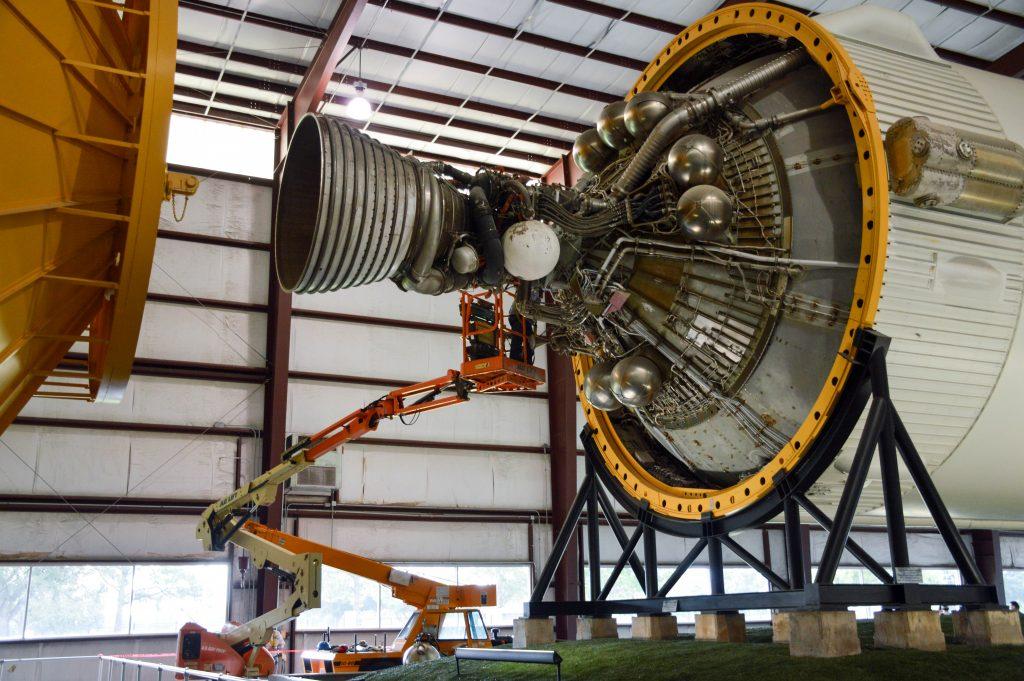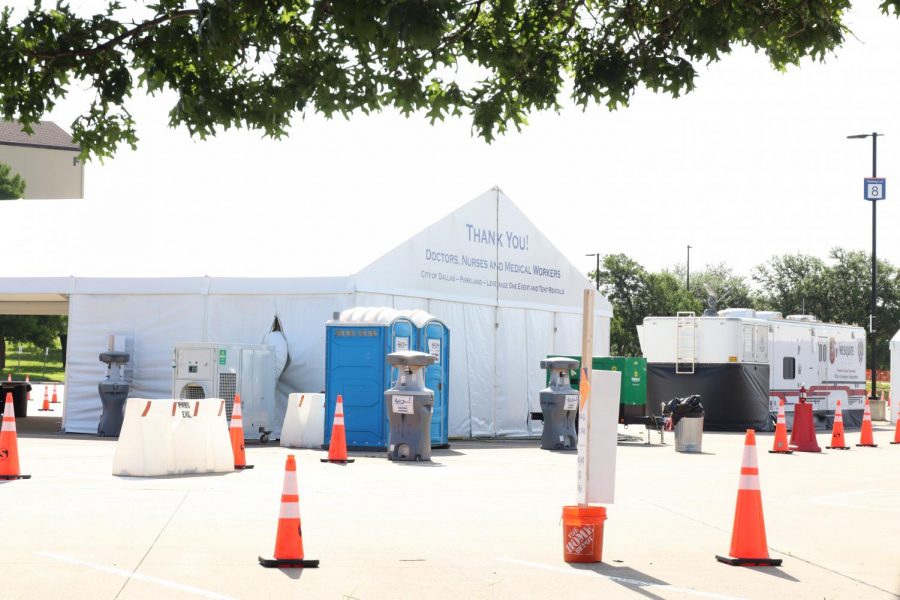NASA’s space exploration reaches new heights with plans to send humans to Mars. These planning stages also prove beneficial for Earth and its inhabitants.
By Diamond Victoria
Editor-in-Chief

A retired Saturn V Rocket on permanent display at Rocket Park in NASA’s Johnson Space Center in Houston.
Despite arguments claiming space exploration is obsolete and a waste of government funding, it is undoubtedly the backbone of American progress in science, technology, engineering and mathematics.
NASA, the leader in this exploration, plans to send humans to Mars, a goal the space agency has been working toward for the past decade, Elizabeth Rampe, a NASA Mars research scientist, said.
Cutting funds or simply turning back now would be a tragedy for the scientific community.
A benefit of exploring outside of Earth’s orbit is obtaining a better understanding of the planet’s climate change by observing and collecting camera images of natural and man-made events. Other benefits include learning more about human health factors, such as trauma, aging and disease, by documenting astronauts’ physical changes in a microgravity environment and sharing the methods used in the space station to recycle dirty water with at-risk areas on Earth without drinkable water, according to nasa.gov.
NASA scientists concluded Mars was once a planet with flowing water, and they speculate it was very similar to Earth at one point, making it vital for them to study.
By understanding the geological makeup of a planet that is likely the most similar to Earth, scientists can not only understand our own planet but also ultimately set in motion future generations’ opportunity to inhabit other planets. With mass pollution, drought, climate change and landfills becoming overwhelming in some areas, this move may become necessary for a
better quality of life.
President-elect Donald Trump has called climate change a hoax, according to The New York Times. But scientists have proven its actuality time and again.
The Mars rover Curiosity has been stationed on Mars for four years, with 10 miles of exploration under its belt, according to space.com. In this time, scientists have been able to collect and analyze data samples, including rocks, along with observing the planet’s landscape.
Rampe said astronauts are learning to accurately identify certain rock formations and geological findings as part of their training for a mission to Mars.
This exploration is the first step in a long journey to uncover not only the story of Earth’s solar system, but also the universe as a whole.
The Obama administration has been relatively cooperative in helping shape the Mars mission initiative. On Oct. 12, the president released an editorial on space exploration.
Moving into the Trump administration Jan. 20, Americans, along with the rest of the world, should understand how important it is to have leaders who help fight for causes that will benefit humanity in the long run. It’s important to take action with space exploration in the fight for a better understanding of Earth and its future.


